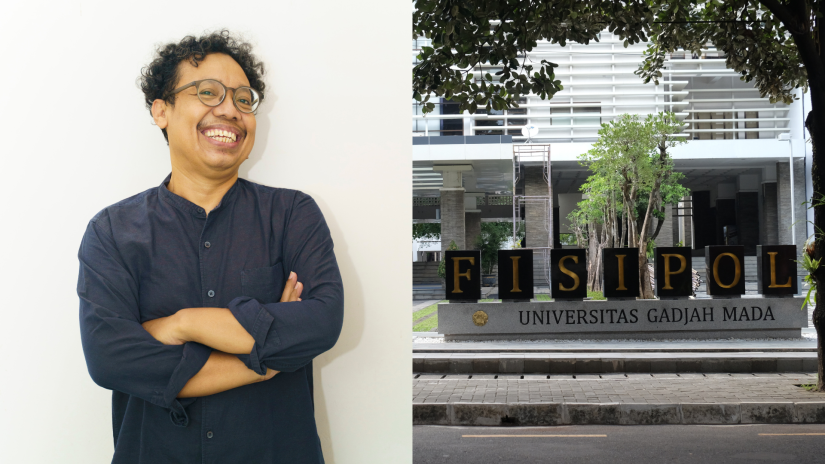
Yogyakarta, October 23rd 2023─Creating an inclusive and disability-friendly environment is a manifestation of the mandate contained in Law No. 8/2016 on Persons with Disabilities. However, more than that, the importance of inclusiveness also refers to the appreciation of the values of diversity and humanity more broadly. This was conveyed by Budi Irawanto, Lecturer at Faculty of Social and Political Sciences of UGM, when interviewed about inclusive campus on Thursday (19/10).
According to Budi, the journey towards an inclusive campus must start from the admission stage. “The campus must allow anyone with any condition to become a prospective student. All have access to register,” said Budi. Not only for students, campuses also need to open opportunities for lecturers and educators with disabilities to expand participation in the workforce. In addition, assistance is needed for students with disabilities. This assistance not only includes the provision of infrastructure, but also support in the learning process.
Budi highlighted the fact that the use of visual materials in teaching often favors non-disabled students. Meanwhile, it can be a big obstacle for students with disabilities. “Not to mention for deaf and hard of hearing students, what is conveyed by the lecturer may be difficult to understand if it is only done verbally,” said Budi. Lecturers and campus authorities must understand the need to develop more inclusive learning methods. Budi feels there is a need for special tutorials to meet the needs of students with disabilities in order to overcome these problems.
In addition, Budi also emphasized the importance of integrating disability-related issues in the university curriculum. “Disability issues need to be adopted as a theoretical paradigm which is then translated into courses. This is very important and will be much more long-lasting because it will become part of the academic discourse, the implications of which can also extend to research,” said Budi. For example, in his “Visual Culture” course, there is a session that specifically discusses how humans perceive differences, especially in the context of disability. Budi feels that the opportunity to integrate disability issues in various courses at FISIPOL is very open. “For example, in the Public Policy Management course, the discussion of inclusive policies can be an important topic. In Sociology, identity and stigma can be analyzed from a disability perspective. In Communication Science, we can also discuss disability representation in the media,” she explained.
“Of course, I hope that FISIPOL will become an example or initiator of an inclusive faculty, at least at the UGM level,” said Budi. Furthermore, he also hopes that the issue of disability does not only stop at rhetoric and discourse, but can be implemented into concrete policies and actions. With the right and appropriate approach, we can create real change in higher education, where all students can feel fully accepted and supported. Thus, FISIPOL as an educational institution can open the door to wider access for equality in academia, in accordance with SDGs 4 (Education), SDGs 10 (Reduced Inequality), and SDGs 11 (Sustainable Cities).
